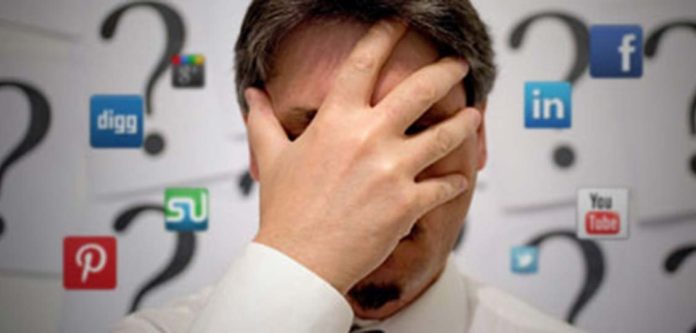
Long shadows
 Like most of my peers, I don’t watch much television. Not in the traditional sense anyway. My nightly viewing consists of Netflix, of pre-recorded programmes and films downloaded from the Internet. Rarely do I sit down and watch something ‘live’.
Like most of my peers, I don’t watch much television. Not in the traditional sense anyway. My nightly viewing consists of Netflix, of pre-recorded programmes and films downloaded from the Internet. Rarely do I sit down and watch something ‘live’.
And were it not for sport, Claire Byrne and the Six o’clock news, I’d have very little use for the array of channels fed into the dusty box beneath my television.
Therefore, it’s quite handy that one of the programmes I pre-record, to watch at my leisure, doubles up as a highlights reel of the previous week’s programming. Gogglebox. The Irish version. I love it. And it was during a recent episode that I discovered, through the medium of other people watching TV, that Big Brother was back on our screens (had it ever left?).
Apparently this is the last ever series – until of course the next one begins.
But it wasn’t that which struck me. Nor was it the appearance of a camp Irishman, or the impossibly smug ‘cockernee geezah’. No, it was what happened to one of the more mundane contestants that caught my attention. Summoned to the diary room, this young woman, Ellis Hillon, was informed that, due to some historical social media activity, her time in the house was up.
She was subsequently removed, not even given enough air-time to warrant a two-page spread in a low-grade lads’ mag, never mind an Hello magazine exclusive.
It later transpired that the offending tweets had been posted in 2014, when Ms Hillon was aged just fifteen. The nature of the content hasn’t been fully verified, but a Channel 5 spokesperson confirmed they were in relation to the 9/11 attack and contained racist slurs.
Fair? Of course not.

How could anyone possibly expect her to understand the gravity of her actions, never mind be held accountable for them in years to come?
Think back to when you were fifteen, to all the heinous stuff you did, the mischief-making and devilment, harmless, throwaway tomfoolery you knew would never come back on you. Now imagine being hauled into HR and being told to pack your bags because of it. Being told that your ten years’ of service counted for nothing, that your pension plan, your healthcare package, were all up in smoke because you threw an egg at your neighbour’s window when you were but a babe.
It’d seem pretty excessive, wouldn’t it, pretty unfair?
Yet, Ellis Hillon is just the latest in a long line of people to fall foul of the Internet police, another victim of the worldwide web’s ability to store and catalogue your every move for future use.
James Gunn directed one of the very best family films to emerge from Hollywood in recent years. Guardians of the Galaxy was a critical and commercial success and looked to set to spawn a series of big-budget sequels, all with Gunn at the helm. That was until someone did a bit of digging and discovered that, in a previous life, Mr Gunn had a penchant for painfully unfunny, mildly offensive jokes about rape.
Career over.
And while Gunn can’t use his age as an excuse – he was in his forties at the time of the tweets – his profile then was far lower than it is now.
There are others, loads of them; Andre Gray, a Premier League footballer, who now plays for Watford, somehow managed to receive a four-game ban in 2016 for tweets he’d posted in 2012 while on the books of non-league club, Hinckley United.
Claudia Oshry, a talk show host whose new programme was canned and name blacklisted following the discovery of old anti-Muslim tweets. And Jack Maynard, another reality show star who got kicked off the Australian version of I’m a Celebrity Get me out of out here! for material he’d posted as a sixteen-year-old.
You could argue that instances such as the above will deter the current generation from repeating the same mistakes, that the more people who are called out for discriminatory posts the more chance there is of eliminating this kind of content completely. But that’s not how the Internet works, or at least not how it works for the ordinary, everyday person. It’s an open forum, an unregulated soapbox for everyone, regardless of their views, to let rip. We generally don’t think of the consequences because, in most cases, there are none.
There are no rules which state that offensive material will see you fired from your current or future jobs; laws which advise teenagers to behave themselves in case they ever get famous and have their online history pored over by sadistic zealots. Instead what we have are pitty-patty Internet regulations, meaningless terms and conditions which will, at the very worst, get you banned from Facebook, kicked off boards.ie.
At no point is ever intimated that these transgressions may carry over into real life, come back to haunt you when you least expect it.
But should there be? Should children today, and adults for that matter, be made aware of how damaging their online activities could be to their livelihoods?
If only it were possible. If only there were a way of turning on the sirens, the flashing red lights, whenever you compose a polemic diatribe and hover your mouse above the tweet icon, a big sign appearing on the screen asking you if you really want to post such hateful content. It would make all our lives easier and allow newly-minted sports’ and reality tv stars to rest easy at night.
Given my own occupation, and the responsibilities which lay therein, I’ve learned to tailor my social media activity accordingly. But that doesn’t mean my true self doesn’t occasionally make an appearance.
Just this week I found myself under intense scrutiny, the centre of a shitstorm of my own making. Having upset a large portion of the population of Sligo, my own social media history was fact-checked, ogled over so that I may be discredited. And those in search of ammunition didn’t have to look too far, the foulest of swear words accompanying the only visible post on my private Facebook account. That was hurled back at me, with glee.
I had the last laugh though. Cos they didn’t even bother checking my Twitter account. You needn’t either. I’ve since deleted the incriminating evidence.
Who do you think you are, Bertie?

Grief, disappointment, heartbreak, they don’t last forever. The pain either becomes easier to handle, or disappears altogether, to the extent that you wonder what it was that got you upset in the first place.
However, there is one emotion which isn’t so easy to shake off, one feeling which doesn’t dissipate over time: anger. If you’ve ever been betrayed, deceived or harmed by someone you thought you could trust then all the time in the world isn’t going to make it better.
And there’s one person, a person we all know, a person we all trusted, who needs to understand that, in his case, not nearly enough time has passed.
Bertie. The little bollix. Have you noticed how he’s been slowly worming his way back into the public eye?
Flirting with the presidency, appearing on Who do you think you are? (how apt), and just generally testing the waters, seeing if we’re ready to welcome him back into the fold.
It’s as if the Mahon Tribunal never happened, as if his name wasn’t dragged through the mud, finances laid bare for all to see. Or maybe he just thinks he’s served his time, feels that six years of listening to his successors has made us yearn for the past, for the politicians of old, for the schemers, wheelers and dealers of the eighties and nineties.
Well, we’re not. As bad as the current incumbents are we at least know where we stand with Leo and the boys.
They may be callous and inconsiderate, devoid of remorse or anything approaching empathy, but their closets contain nothing but navy-blue suits and stylish socks. And for all Bertie Ahern’s charm, for all his likeability, his everyman qualities, that’s one thing we’re never going to be able to say about him again.










